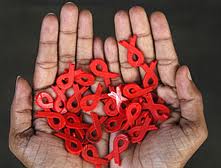Years back, when you were diagnosed with HIV/AIDS, it would instantly bring you to your knees because it meant that you had a very terminal disease. The feeling was much like that of having end-stage cancer wherein there was no hope of surviving. But as medical breakthroughs pushed through, new medications have enabled HIV/AIDS victims to have a very productive life. HIV/AIDS has already been transformed into a chronic illness now rather than maintaining the reputation of being a fatal or terminal one.
Although HIV/AIDS patients undergo the deterioration of their organ systems, one or two at a time, they don’t feel much of the situation’s gravity anymore. Although it is now a chronic ailment, it is already possible to live at your best if you know how. It is still challenging to live a life of uncertainty with HIV/AIDS hovering over you but it is very doable. Here are some of the valuable things to remember in living with HIV:
1. Do your homework
 In living with HIV, you really have to make sure that you know everything that you have to know about your condition. It is not enough that you take home those brochures from the clinic. You have to maintain the diligence in updating yourself with the latest about HIV/AIDS. As scientific research gains stronger footholds in various areas, medicine is never left out. Diseases like HIV/AIDS is always given attention when it comes to treatments and trends. The internet is filled with a continuous flow of information so take advantage of the knowledge flow. Get updated as much as you can.
In living with HIV, you really have to make sure that you know everything that you have to know about your condition. It is not enough that you take home those brochures from the clinic. You have to maintain the diligence in updating yourself with the latest about HIV/AIDS. As scientific research gains stronger footholds in various areas, medicine is never left out. Diseases like HIV/AIDS is always given attention when it comes to treatments and trends. The internet is filled with a continuous flow of information so take advantage of the knowledge flow. Get updated as much as you can.
2. Positivity
 When you are living with HIV, you should have the mindset that it is not a terminal disease. It is very important that you hold on to the concept that it is a chronic that you have to deal with everyday for the rest of your life instead of thinking that you will die once you are diagnosed with it. This helps you get by each day by reinforcing the hope that you have.
When you are living with HIV, you should have the mindset that it is not a terminal disease. It is very important that you hold on to the concept that it is a chronic that you have to deal with everyday for the rest of your life instead of thinking that you will die once you are diagnosed with it. This helps you get by each day by reinforcing the hope that you have.
3. Experienced doctor
 You should always be under the care and supervision of an experienced doctor. The physician must have already worked with HIV/AIDS patients before to really help you with your present dilemma. This is one of the important things that you should continue in living with HIV. With the doctor’s experience, you will be able to get over the everyday challenges of your disease.
You should always be under the care and supervision of an experienced doctor. The physician must have already worked with HIV/AIDS patients before to really help you with your present dilemma. This is one of the important things that you should continue in living with HIV. With the doctor’s experience, you will be able to get over the everyday challenges of your disease.
4. Follow the treatment
 In living with HIV, make sure that you always follow the treatment that your doctor tells you to follow. Doing so will enable you to have the regular flow of medication that your body needs. Lifestyle and diet changes will also help you with improving your condition bit by bit.
In living with HIV, make sure that you always follow the treatment that your doctor tells you to follow. Doing so will enable you to have the regular flow of medication that your body needs. Lifestyle and diet changes will also help you with improving your condition bit by bit.
5. Be open with your doctor
 Part of being able to deal with HIV/AIDS is being open with your doctor when it comes to the side effects of the medications.
Part of being able to deal with HIV/AIDS is being open with your doctor when it comes to the side effects of the medications.
6. Have a balanced life
 Everything in your life should be maintained at a balance. Living with HIV requires you to be vigilant with your balanced diet and healthy lifestyle to strengthen your body more. This helps the treatments become more effective.
Everything in your life should be maintained at a balance. Living with HIV requires you to be vigilant with your balanced diet and healthy lifestyle to strengthen your body more. This helps the treatments become more effective.
7. Confide
 In living with HIV, you have the prerogative to tell a number of people who could help support you during your time of need. You could choose or not choose to tell your employer if you believe that it would be of great benefit for you.
In living with HIV, you have the prerogative to tell a number of people who could help support you during your time of need. You could choose or not choose to tell your employer if you believe that it would be of great benefit for you.
8. Work
 Working is a means of elevating your self-worth. As long as you can get out of the house and work, do so. Depression could easily kick in when your mind is idle.
Working is a means of elevating your self-worth. As long as you can get out of the house and work, do so. Depression could easily kick in when your mind is idle.
9. Keep social
 Continue to socialize with friends. Do not close up yourself because talking and being with other people will help you a lot emotionally.
Continue to socialize with friends. Do not close up yourself because talking and being with other people will help you a lot emotionally.
10. Keep emotions stable
 Keeping your emotions stable as you deal with a chronic illness such as HIV/AIDS is a great challenge. Your moods will always change and this may cause huge dents in the relationships that you have. When this happens, seek counseling and support groups.
Keeping your emotions stable as you deal with a chronic illness such as HIV/AIDS is a great challenge. Your moods will always change and this may cause huge dents in the relationships that you have. When this happens, seek counseling and support groups.
Living with HIV needs time to adjust to. Grieving about your health’s deterioration is only natural and should not be hurried. It is only natural for you to be depressed about it so as much as possible, find people who could help you get through this valuable phase of your life. Consistent and appropriate healthcare is needed for you to lead an optimal life as an HIV/AIDS patient. This constant medical attention is needed to make sure that the disease doesn’t progress quickly.
